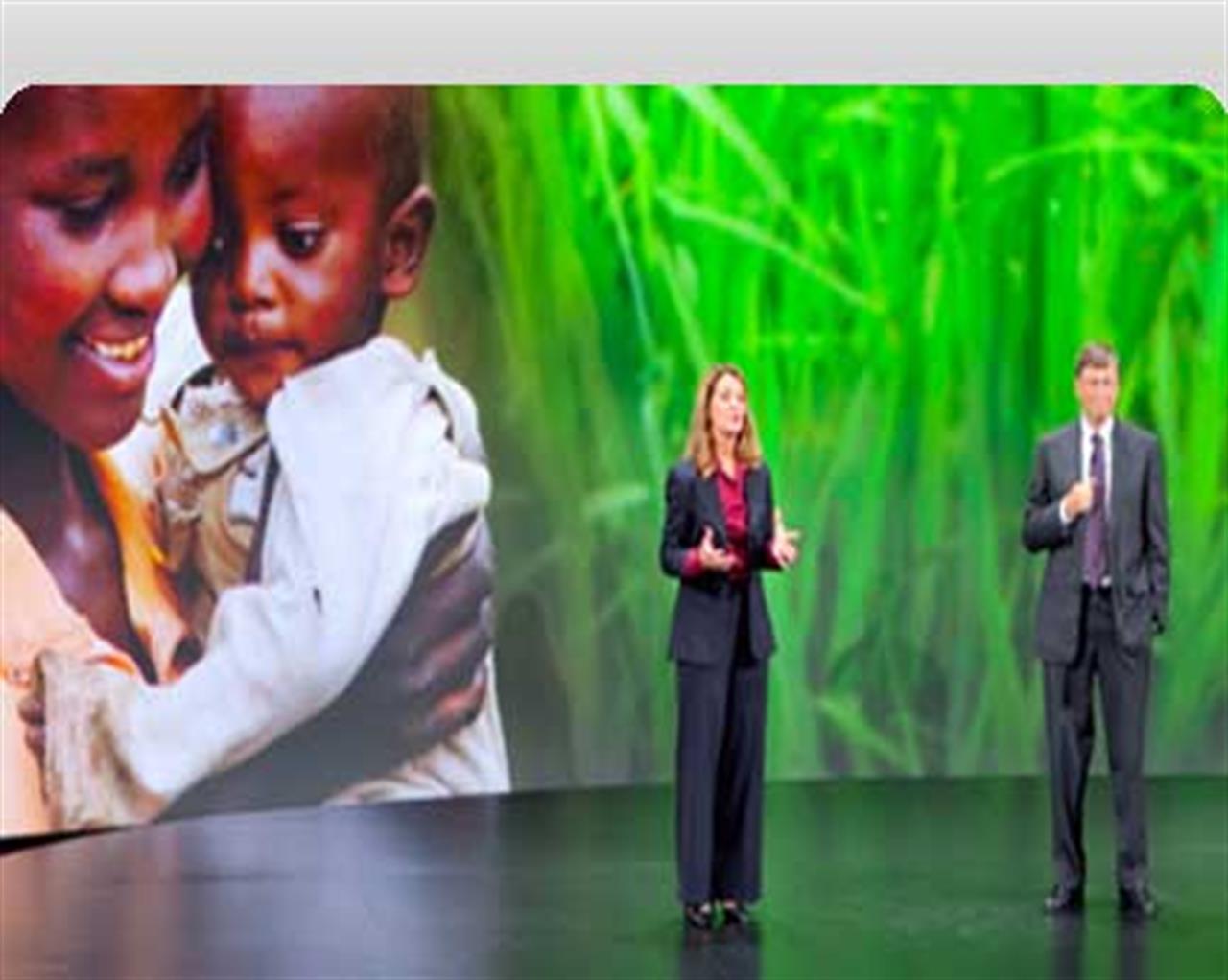Non profit
The power to think big
Global health and Bill Gates' annual letter on his multi-billion charitable activities
di Rose Hackman

World health, it seems, is Bill Gates’ battle of choice. His weapon to bring it about? Innovation. The bad guy? Berlusconi – who else.
For the second year running, Bill Gates, the American business magnate turned philanthropist, has published an open letter to the public on the website of his Bill & Melinda Gates Foundation for which he has been working full-time since 2008 alongside his father and his wife Melinda. The 18-page letter, which depicts one by one the main issues his organisation tackles, comes across as a form of state of his nation, or review of his philanthropic endeavours and reflections.
The letter will come of interest to many, as with a $34-billion budget, the foundation’s grant making ability makes it the most powerful transparent charitable operation in the world.
Health first
Although he touches on a number of different issues, such as education in the United States, child mortality in northern India and the plight of small farmers, a general fight for health in Africa and other impoverished regions of the world is the main focus of his address.
“The foundation works on health in poor countries because we think it’s the best way to improve lives globally.”
According to the foundation website, over $12 billion have been spent on global health since the start of Gates’ charitable activities in 1994. His ambitions match the depth of his pocket: among other things, Gates has declared the wish to totally eradicate malaria, citing Zambia as a one of the countries where a pilot project was funded related to the fight against the illness using insecticide-treated bed nets.
When it comes to the HIV/AIDS epidemic, beyond citing encouraging progress in the search for a vaccine, Gates is not afraid of backing lesser known projects with ambitions of reduction as opposed to total eradication.
“Studies have shown that male circumcision reduces the odds of transmission [of HIV/AIDS] from a woman to a man by over 60 percent. […] If a high percentage of men volunteer for circumcision, it will reduce the number of cases at least 30 percent over time.”
The risk of innovation
If health occupies five of the ten main themes he draws upon (childhood deaths, vaccines, malaria, polio and HIV/AIDS), it is his constant search for innovation through research, experimentation and risk taking that define the man’s approach to his work.
“Melinda and I see our foundation’s key role as investing in innovations that would not otherwise be funded,” explains Gates. “This draws not only on our backgrounds in technology but also on the foundation’s size and ability to take a long-term view and take large risks on new approaches.”
Of his sometimes chancy approach, he refers to his friend and advisor Warren Buffet, who reportedly advised the Gates couple in 2006 to not “just go for the safe projects.”
Long term these should prove to be big money savers too as successful innovative projects should “allow you to do a lot more for the same cost.”
Black sheep
The world’s richest man isn’t frightened of taking on Italy’s. Indeed breaking with an otherwise positive, encouraging and non-accusatory tone, the software mogul described the Mediterranean state as being “uniquely stingy among European donors.”
“In June, I met with Prime Minister Berlusconi personally to make the case for more support, but I was unsuccessful. This is a huge disappointment since I still think the Italian public wants to be as generous as people in other countries.”
Climate change and the future
In his closing chapter, Gates takes some time and space to talk about why he has not yet invested in climate change related topics.
“I have not yet seen a way that we can play a unique role here,” he claims, although he assures his reader to have invested in several projects outside of the foundation framework.
All in all Gates’ efforts are an interesting and much needed insight into the mind of a man who in 2008 pledged to donate the bulk of his fortune to charity over his lifetime – his comments are oddly reassuring.
“I am still very optimistic about the progress we can make in the years ahead. A combination of scientific innovations and great leaders who are working on behalf of the world’s poorest people will continue to improve the human condition.”
Cosa fa VITA?
Da 30 anni VITA è la testata di riferimento dell’innovazione sociale, dell’attivismo civico e del Terzo settore. Siamo un’impresa sociale senza scopo di lucro: raccontiamo storie, promuoviamo campagne, interpelliamo le imprese, la politica e le istituzioni per promuovere i valori dell’interesse generale e del bene comune. Se riusciamo a farlo è grazie a chi decide di sostenerci.
